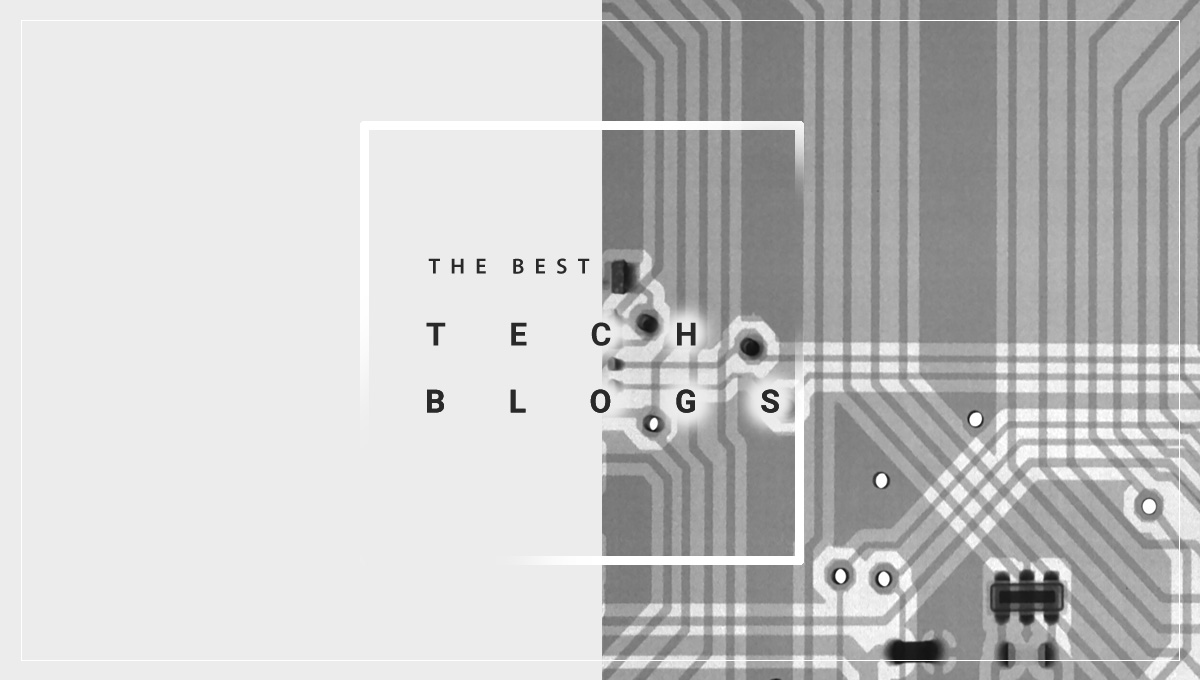The Best tech blog: Your Important Guide to Navigating the Digital World
Just How Blockchain Technology Is Revolutionizing Information Safety
Blockchain technology is fundamentally altering the landscape of information safety by presenting a decentralized framework that assures improved openness and durability. Unlike standard systems, which rely upon centralized data repositories, blockchain disperses information across a network, decreasing vulnerabilities and solitary factors of failure. Using sophisticated cryptographic strategies makes certain that data stays tamper-proof, promoting trust fund among users and stakeholders. As sectors quickly adjust to this modern technology, concerns develop about its wider impact and possible obstacles. What ramifications does this change hold for future data defense methods and regulative frameworks? The responses might shock you (Best tech blog).
The Fundamentals of Blockchain
Blockchain innovation, an innovative idea in electronic data administration, essentially changes how details is stored and safeguarded. At its core, a blockchain is a dispersed ledger that records deals across a network of computers, making sure transparency and immutability.
Key to comprehending blockchain is the hashing procedure, which encrypts transaction information right into a special alphanumeric code. This cryptographic function makes sure that any type of change in the purchase data leads to a completely various hash, therefore safeguarding against meddling. The consensus mechanism, an additional important element, verifies and verifies new deals via a network of nodes, therefore eliminating the need for a central authority.
Additionally, blockchain's append-only structure makes sure that data, once included, can not be removed or changed. This particular warranties a proven and long-term record of purchases, promoting depend on among participants. Because of this, blockchain supplies a robust structure for data honesty, using markets a trustworthy technique for tracking and handling electronic info in a safe and secure, clear way.
Decentralization and Protection
Decentralization, a core concept of blockchain modern technology, considerably improves information safety and security by dispersing control across a network instead than depending on a single, central entity. By distributing information across many nodes, blockchain makes certain that also if one node is endangered, the entire network remains protected.

Each individual in the network has access to the entire blockchain, enabling them to confirm and audit transactions individually. In general, decentralization is instrumental in improving information protection in blockchain networks.

Cryptographic Strategies
At the heart of blockchain technology, cryptographic techniques play a critical role in safeguarding data, making sure both privacy and integrity. These techniques are fundamental to the blockchain's capability to firmly tape deals in a decentralized fashion. Cryptography in blockchain uses a combination of symmetrical and asymmetric algorithms to encrypt information, making it accessible only to licensed parties - Best tech blog. Public and private vital pairs are main see to this procedure, permitting for safe authentication and identity confirmation without revealing delicate info.
Hash functions are another crucial component, changing input data right into a fixed-size string of characters, effectively producing a special digital fingerprint for each and every block. This guarantees that any type of attempt to alter the information will result in an entirely different hash, thus maintaining the immutability of the blockchain. Electronic signatures validate the credibility and honesty of deals, supplying a layer of non-repudiation.
The decentralized nature of blockchain, combined with durable cryptographic strategies, eliminates the demand for intermediaries, lowering possible susceptabilities. As blockchain innovation progresses, improvements in cryptography such as zero-knowledge proofs and homomorphic encryption continue to enhance protection procedures, better fortifying information defense in this revolutionary electronic ledger system.
Usage Situations Throughout Industries

In the medical care sector, blockchain guarantees the safe and secure storage space navigate to this site and sharing of individual documents, promoting interoperability while guarding sensitive information from unauthorized access. This technology encourages individuals with control over their case history and promotes seamless control among doctor.
Supply chain monitoring advantages substantially from blockchain's unalterable journal, which ensures traceability and authenticity of products from beginning to consumer. By improving openness, blockchain helps mitigate issues such as counterfeiting and dishonest sourcing.
In addition, blockchain's decentralized nature is improving the power field by enabling peer-to-peer power trading, where consumers can deal excess renewable resource straight. This fosters an extra sustainable and efficient power community.
In the world of copyright, blockchain gives a tamper-proof platform for creators to register and safeguard their jobs, guaranteeing rightful acknowledgment and fair settlement. These varied usage cases underscore blockchain's duty as a crucial pressure in redefining information protection across sectors.
Future of Information Defense
As we look to the future of data defense, blockchain technology is poised to play a pivotal function in protecting digital info. With its decentralized and immutable attributes, blockchain uses a robust structure for safeguarding delicate data against unauthorized access and cyber threats. This modern technology makes sure that as soon as data is tape-recorded, it is nearly impossible to alter without discovery, thus supplying a considerable benefit over typical information storage space approaches.
The assimilation of blockchain with various other advanced innovations, such as expert system and the Internet of Points (IoT), is anticipated to enhance data protection strategies further. By leveraging clever agreements, organizations can apply and automate protection methods, decreasing human error and increasing effectiveness. In addition, blockchain's ability to give traceable and clear transactions will reinforce depend on and accountability in information administration methods.
As governing landscapes develop, blockchain's compliance-friendly nature will certainly become progressively pertinent. It can assist companies fulfill stringent information defense policies, such as the General Information Security Regulation (GDPR) and the California Customer Privacy Act (CCPA), by supplying proven documents of data handling tasks. Inevitably, blockchain's unique features placement it as a transformative tool in the ongoing mission to secure the digital world against ever-evolving cyber threats.
Final Thought
Blockchain innovation represents a standard change in data security by leveraging decentralization and cryptographic methods to boost openness, trust fund, and data stability. As cyber threats advance, blockchain emerges as an important tool for durable information defense throughout various industries.
Blockchain innovation is essentially modifying the landscape of information protection by introducing more a decentralized structure that promises boosted transparency and durability. Unlike standard systems, which count on centralized information repositories, blockchain distributes information throughout a network, minimizing vulnerabilities and solitary factors of failing.Decentralization, a core concept of blockchain innovation, dramatically enhances data security by distributing control across a network rather than counting on a single, centralized entity.At the heart of blockchain technology, cryptographic strategies play a critical role in securing information, making certain both confidentiality and honesty.Blockchain modern technology stands for a paradigm shift in information safety by leveraging decentralization and cryptographic techniques to improve openness, count on, and information honesty.